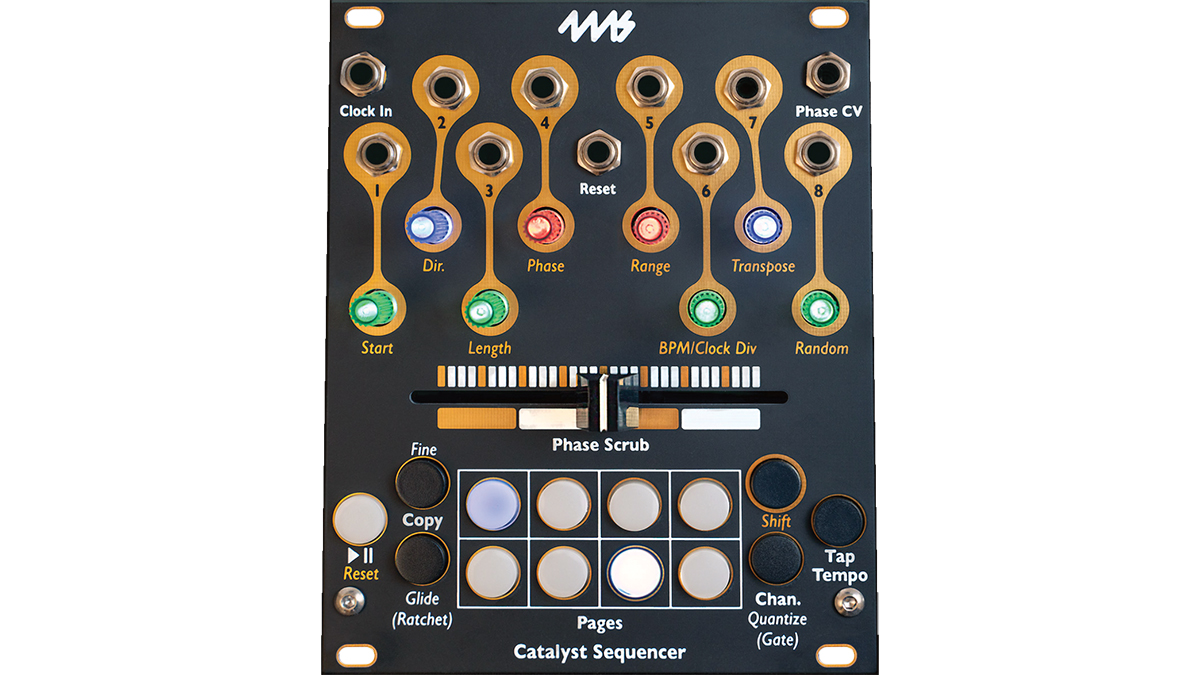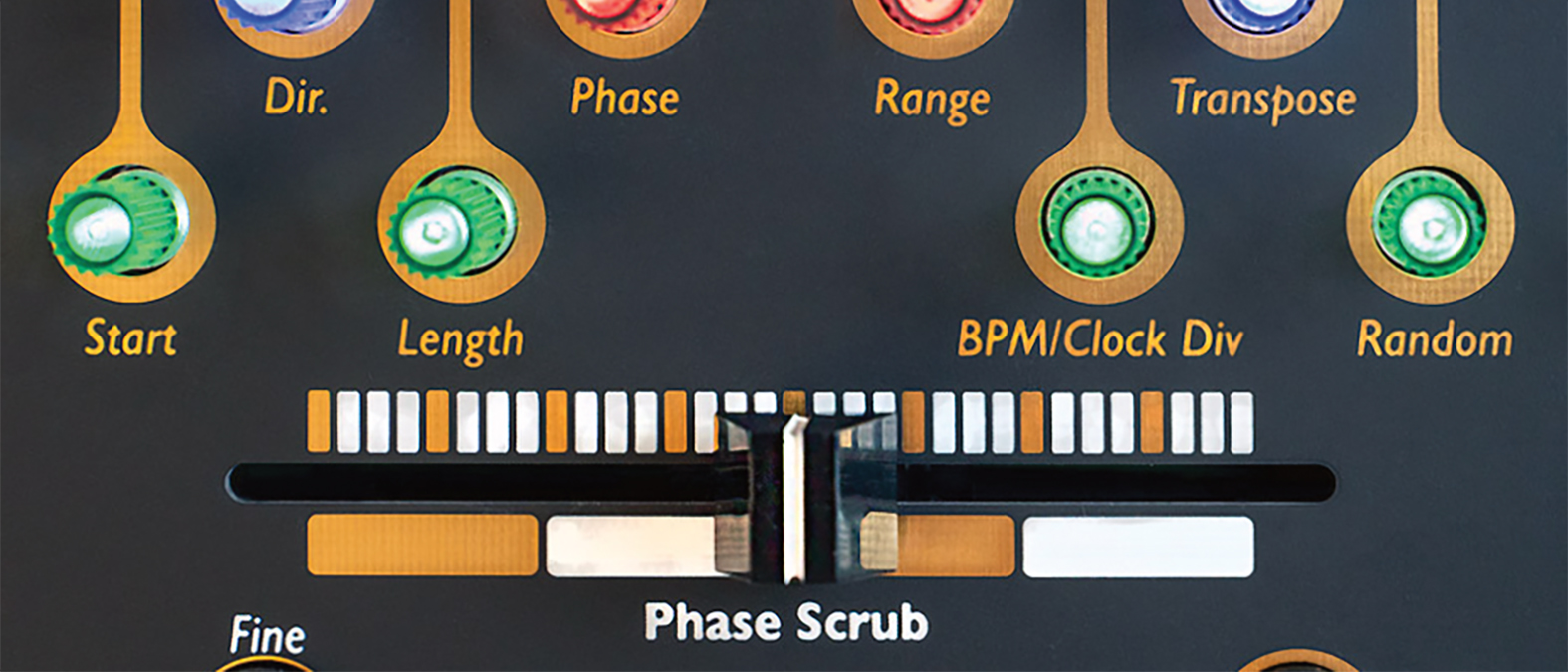MusicRadar Verdict
An excellent module that combines both rigid and random sequencing styles, and in a clever move can double as a controller too.
Pros
- +
Entertaining to use.
- +
Easy happy accidents.
- +
Solid build quality.
- +
Dual use module.
- +
Excellent user guide.
Cons
- -
A little too many button combos.
MusicRadar's got your back
4ms Catalyst: What is it?
Sequencers in the world of modular are easy to find, with most falling into one of two camps. The more structured rigid type, where you may have a few channels of step sequencing, allowing you to programme a bass, melodies and drum pattern, with some modules varying their offerings slightly.
Then there’s the other type, which is much more about randomness and happy accidents. Think Erica Synth’s Black Sequencer vs Intellijel’s Metropolix. Both worthy contenders and excellent in their own right but what if there’s another way?
Well, 4MS believes there is and that it comes in the shape of the 20hp Catalyst Sequencer, which certainly has more than a few tricks up its sleeves.

4ms Catalyst: Performance and verdict
First off is the size and layout. For something with this much capability it is positively tiny. 20 hp for a 64-step, multi-channel sequencer is impressive but how do you interact with it? Surely there must be a lot of menu diving. Well, no. There are a few button combos to memorise and the illuminated knobs change colour to signify what settings you have input and, while this does take a little time to recall, it isn’t too bad and the module ships with a handy printed guide, which really aids in that.
Catalyst has eight channels, which can be driven by clock, tap tempo, CV or using the onboard slider, and each can have between one and 64 steps. Not only is there enough for a complex arrangement but it is a doddle to add ratchets, glides and gates per channel, making easy work of adding expression, detail and interest to a patch.
The controls feel great; the slider is light-touch and it’s satisfying to change the sequencer’s phase this way, although plugging in a mod source works well too.
What is really a bold move by 4MS and a very welcome one is that, by entering a button combo and flipping the fascia, you can turn this into the Catalyst Controller instead, giving you double the fun. The control layout remains the same but you now get all manner of CV tools, including a 20-second CV recording option and the ability to set up eight channels of CV presets, which can be accessed using the slider or an external trigger.
Want all the hottest music and gear news, reviews, deals, features and more, direct to your inbox? Sign up here.
So, no matter if you want a magical sequencer or a type of modular CV preset machine, the Catalyst is a fantastic option, with far more capability than there is space to cover here.
Returning to my initial point about rigid vs random, the Catalyst does both. It can be free running or quantised, meaning you can set a scale, then twist a few knobs and access some happy accidents, or dial in more carefully and get exactly the results you expected but with the ability to adapt the sequence using the fun slider.
MusicRadar verdict: An excellent module that combines both rigid and random sequencing styles, and in a clever move can double as a controller too.
4ms Catalyst Sequencer/Controller: Hands-on demos
4ms Company
Red Means Recording Modular
Blush Response
4ms Catalyst Sequencer/Controller: Specifications
- KEY FEATURES: Two modules in one, Eight channel sequencer for gates and CV, CV recorder, scene/preset manager.
- CONTACT: 4ms



